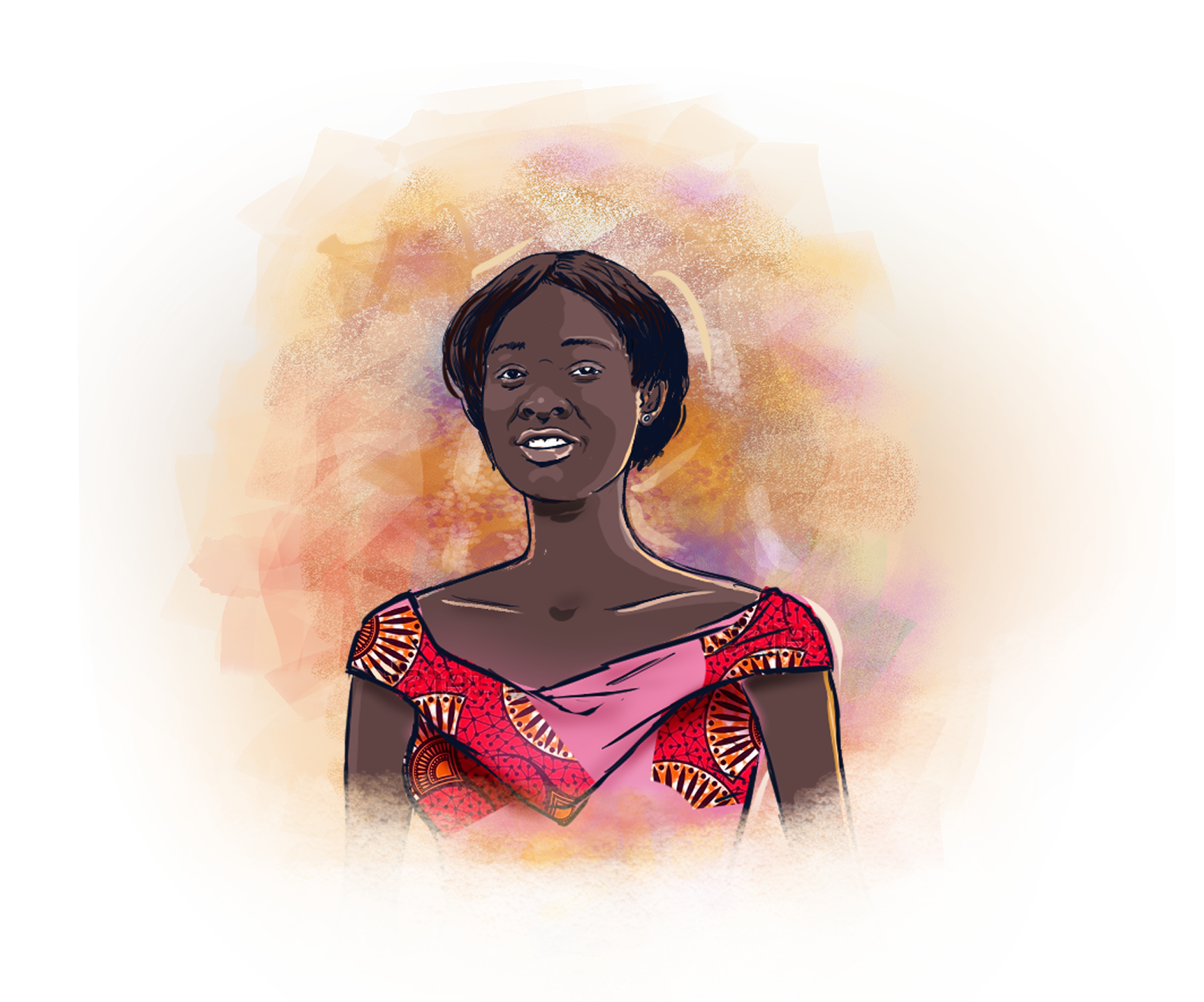Three actions you can take to stop sexual violence and promote sexual and reproductive health:
- Engage men by educating them on the importance of sexual and reproductive health rights and services
- Women and girls to stand together to fight for their rights
- Ensure women and girls have quality and unlimited Access to sexual and reproductive health services
I am Generation Equality because…
Women and girls face discrimination and are treated unequally compared to men and boys. Here in our community in Jewi Refugee Camp, girls and women are expected to fulfill all household tasks which include building or maintaining our houses, preparing food, and caring for children, giving us less time to focus on education. I choose to speak up for women because I am a woman, and I know this pain. I personally face challenges with my academic performance because I have to work long hours to support my mother to feed our family. On top of this, I can’t afford hygiene products, which means that I can’t attend school during my menstruation.
I am proud to have learned a lot about sexual and reproductive health and rights by attending training. For example, I now know about family planning and therefore I no longer worry about getting pregnant. I pass on the knowledge I gained in my community, including the importance of utilizing health services. I also support mother-to-mother groups, and we work together to fight for our rights. Because of the awareness created in the community, more mothers are giving birth in health centers instead of at home.
What are the most urgent issues of our time?
Sexual health and sexual violence are acute challenges for us girls and women. In the refugee camp, we are forced to walk long distances to collect firewood, which makes us vulnerable to rape. Furthermore, health facilities are only open seven hours during the daytime, which means that you can’t get access if there is an emergency in the evening. As some health services cost money, we need to depend on our male partners to get cash to access these services.
What can everyone do to promote sexual and reproductive health and stop sexual violence?
Everyone needs to be involved, including men, because even if women are informed, they may need the consent of their male partners to utilize the services. In the camp, we have involved men in a few events, and now they at least won't forbid us from going to peer groups to discuss health and rights issues. We as women and girls must stand together to fight for our rights, including our rights to be economically independent, live free from violence, and have access to basic services including water, energy, health, and menstrual hygiene products.
Nyamal Pal is 20 years old and from South Sudan. Since 2015, she has been living with her mother and five siblings in Jewi refugee camp in Gambella, Ethiopia. She is actively engaged in UN Women’s Programme on Women’s Empowerment in Sexual, Reproductive, Maternal, Newborn, Child, and Adolescent Health rights in humanitarian settings in the Horn of Africa Region (POWER), which is supported by the Austrian Development Agency. The programme focuses on removing the barriers that prevent women, adolescents, and girls from accessing their rights to and seeking services for sexual, reproductive, maternal, newborn, child, and adolescent health. Illustration by UN Women/Michael Lusaba

